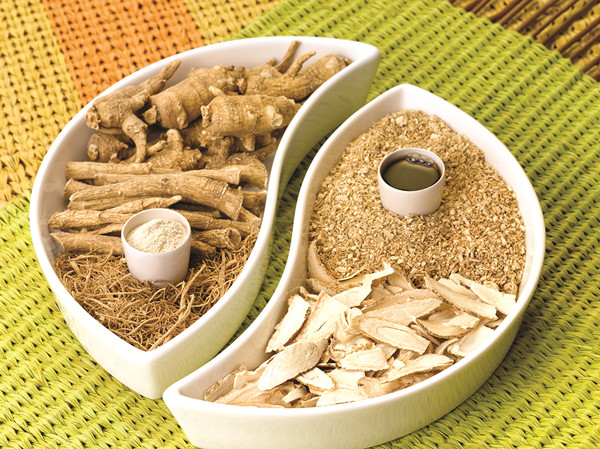
 |
|
Wisconsin exports 80 percent of its ginseng to China and other Asian nations. The state's ginseng is highly valued for its potency and taste. Provided to China Daily |
As Chinese New Year celebrations wind down, stores in China will restock their shelves with something from the United States that has become a favorite gift for the holiday: ginseng grown in Wisconsin.
Wisconsin's ginseng crop is so valued in China that it has spawned a counterfeit business which threatens to undermine its value and brand marketability, according to Tom Hack, international marketing director for the Ginseng Board of Wisconsin.
"I think that the consumers (in China) recognize that something from the US is safe and the Chinese favor our brand because of its stronger flavor. Ginseng is also a popular New Year's gift," he told China Daily.
The Chinese have used ginseng for thousands of years believing that it helps everything from enhancing sexual performance to reducing stress. It is also an important ingredient in Traditional Chinese Medicine. Wild and cultivated American ginseng is prized in China and other Asian countries for its potency and taste. Asian consumers believe that American ginseng - especially the Wisconsin product - is superior for its ability to cool and soothe the body while Asian varieties are considered hot and stimulating.
A long winter and fairly heavy snow cover give Wisconsin ginseng growers an advantage. After ginseng seeds are planted, it takes 18-21 months before they germinate, Hack said. Wisconsin's winters provide cover until the plants emerge in May and then are harvested in the fall.
"We don't harvest the roots until they have been in the ground for three to four years," said Hack. "I think this is what gives our product a better quality."
The state has a long history with ginseng. "Wisconsin was the first state to cultivate and export ginseng to China," said Jennifer Lu, an economic development consultant with the Wisconsin Department of Agriculture, Trade and Consumer Protection.
The most sought-after ginseng is wild ginseng, which is very expensive, according to Hack.
For cultivated ginseng, Hack said Wisconsin farmers received on average $78 a pound last fall.
He noted that the Badger state produced about 700,000 pounds of ginseng last year or about 95 percent of the cultivated ginseng in the US. Approximately 80 percent of Wisconsin's crop was exported to China and other Asian nations. That leaves about 140,000 pounds of genuine Wisconsin ginseng for distribution in the US.
Wisconsin's ginseng exports to China totaled about $10 million in 2014. Exports to Hong Kong were $15.6 million Lu said.
Many stores in the US sell ginseng in packages labeled as being from Wisconsin. "There is no way we could have produced the entire ginseng in this country that has a Wisconsin label on it," Hack said. He believes that most of the ginseng labeled as being from Wisconsin was actually grown in Canada.
The Wisconsin Ginseng Board established an official seal that could be stamped only on board-verified ginseng products in the 1990s. "We discovered that the seal was being copied and used without our permission," said Hack.
To remedy the situation, Hack said seven distributors worldwide including two in the US are authorized to use the seal. To help with counterfeiting in China, the Wisconsin board signed a 10-year deal in 2013 to export $200 million of ginseng to China with Beijing Tong Ren Tang Health-Pharmaceutical Co Ltd, an affiliate of the centuries-old traditional Chinese medicine brand Tong Ren Tang.
Tong Ren Tang, founded in 1669, is one of the best-known brands in China and was among the first to be designated a Chinese cultural heritage brand by the government.
"The biggest challenge for us is to assure consumers whether they are in the US, China or any other country that the ginseng they are purchasing with a label that says it was grown in Wisconsin was in fact harvested here. Hopefully the seal and the limited number of authorized distributors will accomplish that," Hack said.
Jen Pino-Gallagher of the state department of agriculture, trade and consumer protection, said ginseng gives them an opportunity to let everyone know that Wisconsin agriculture is more than just dairy.
paulwelitzkin@chinadailyusa.com